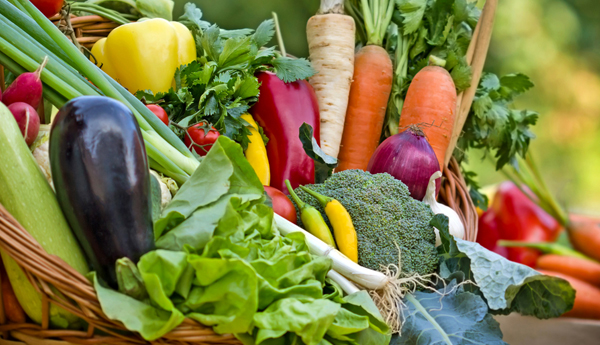For many, the idea of wellness seems like an unattainable goal. Life pressures, especially financial, can make people feel like they are confined to a particular way of life – an unhealthy one. It is no wonder people feel this way when elite gym memberships and boot camps are marketed as the only way to reach your fitness goals but threaten to break the bank before you break a sweat.
Healthy eating, or the idea of healthy eating, is also daunting especially for those who aren’t as confident in the kitchen or are simply too busy to cook. Convenient pre-made foods, while nutritionally neutral or deficient, can seem preferable to meals made from scratch, especially when they are sold at a seemingly cheap price point. The truth is, making a few simple lifestyle adjustments, without spending any money, can make an astronomical difference to your health and may well be easier to maintain in the long term, being cost effective and self-directed. We’ve put together some tips on creating a healthy lifestyle which is sustainable and budget friendly below.
1. Plan Your Meals
Making food decisions at the point when you’re ready to eat can mean you opt for something quick and convenient, and anything cheap is usually not going to be particularly nutritious or satisfying. Meal planning makes life easier in many ways, including having ingredients in the fridge or pantry you can whip together, sometimes quicker than the time it takes to head to the shops and back or to get takeaway food. It also allows you to economize ingredients across multiple dishes which means you spend less and waste less food. The additional benefit is that you can plan meals which will provide enough protein, vitamins and minerals so you’ll be satiated throughout the day and feel more energetic – reducing the need to purchase additional snacks for an energy hit.
2. Shop At Farmers’ Markets
Buying fresh foods can seem expensive, but in comparison to packaged or pre-prepared foods, the key nutrients they provide are far more valuable. Produce bought at Farmers’ Markets generally lasts longer and is cheaper than fruit and vegetables available at larger grocery chains. One of the key reasons is the produce is seasonal and far fresher, not having to be frozen or travel great distances. Heading to the Farmers’ Markets just before they close means you can get a range of fresh foods at slashed prices when sellers are trying to get rid of extra produce.
3. Be Strategic At The Supermarket
As Farmers’ Markets may not have absolutely everything you need or are not always convenient to get to, supermarket visits may be necessary. A hot tip is to stay away from the central aisles of the grocery store. As mentioned above, packaged foods can seem cheap but provide minimal nutritional benefits. Also, you can often purchase many nuts and grains from bulk bins which have cheaper price by weight than their packaged counterparts. Shopping for seasonal foods at the supermarket will also be cheaper, being cheaper for farmers to produce and sell on.
4. Stock Your Pantry With Staples
Building a stock of staples will save you money long term as you’ll be able to prepare a variety of meal combinations. Dry foods including rice, quinoa, barley, whole meal pasta and flour are fantastic for developing the base of many recipes. Tinned and preserved foods can also take you a long way and create filling meals, so be sure to stock the pantry with mixed beans, chickpeas, lentils, and tinned tomatoes. Having a range of dried herbs and spices on hand means your meals on a budget won’t be bland!
5. Get Creative With Food Waste
Vegetable scraps and bones can be used to create stocks and broths which will add depth of flavor to future meals and save the cost of store-bought stocks.
-
Start a garden: Grow whatever you can in the space you have. There are so many vegetables and herbs that can grow in a variety of environments, even on an apartment windowsill! Fresh herbs can be incredibly expensive when bought from a supermarket, especially when only a small amount is required for a particular recipe. Growing your own vegetables and herbs means you’ll always have something fresh on hand to add flavor and substance to your meals and you can pick exactly what you need.
-
Drink water: A seemingly obvious one, but drinking water is one of the cheapest and most important things we can do for our health. A small investment in a durable water bottle will mean you can avoid dishing out a couple of dollars each time you get thirsty on the go! Not drinking enough water can make us feel like we are hungry,. More water throughout the day may also help to curb extra spending on snacks.
6. Exercise For Free
Exercise can be done anywhere at anytime – even while you work if you’re creative enough! Some ideas for cheap and impacting exercise include:
-
Walking instead of catching public transport or driving. (If you have a longer commute, try getting off a few stops earlier or parking further from your destination.)
-
Utilize free gyms at your local park. Some parks have simple, permanent exercise stations you can use to build strength and tone muscle.
-
Go for a long walk or run in your neighborhood.
-
Yoga at home: there are numerous free, high quality yoga instruction videos available which allow you to engage in a peaceful form of movement whenever it suits you!
-
Hikes – check out nature walks and hiking areas near you. Hikes are great for the body and mind!



